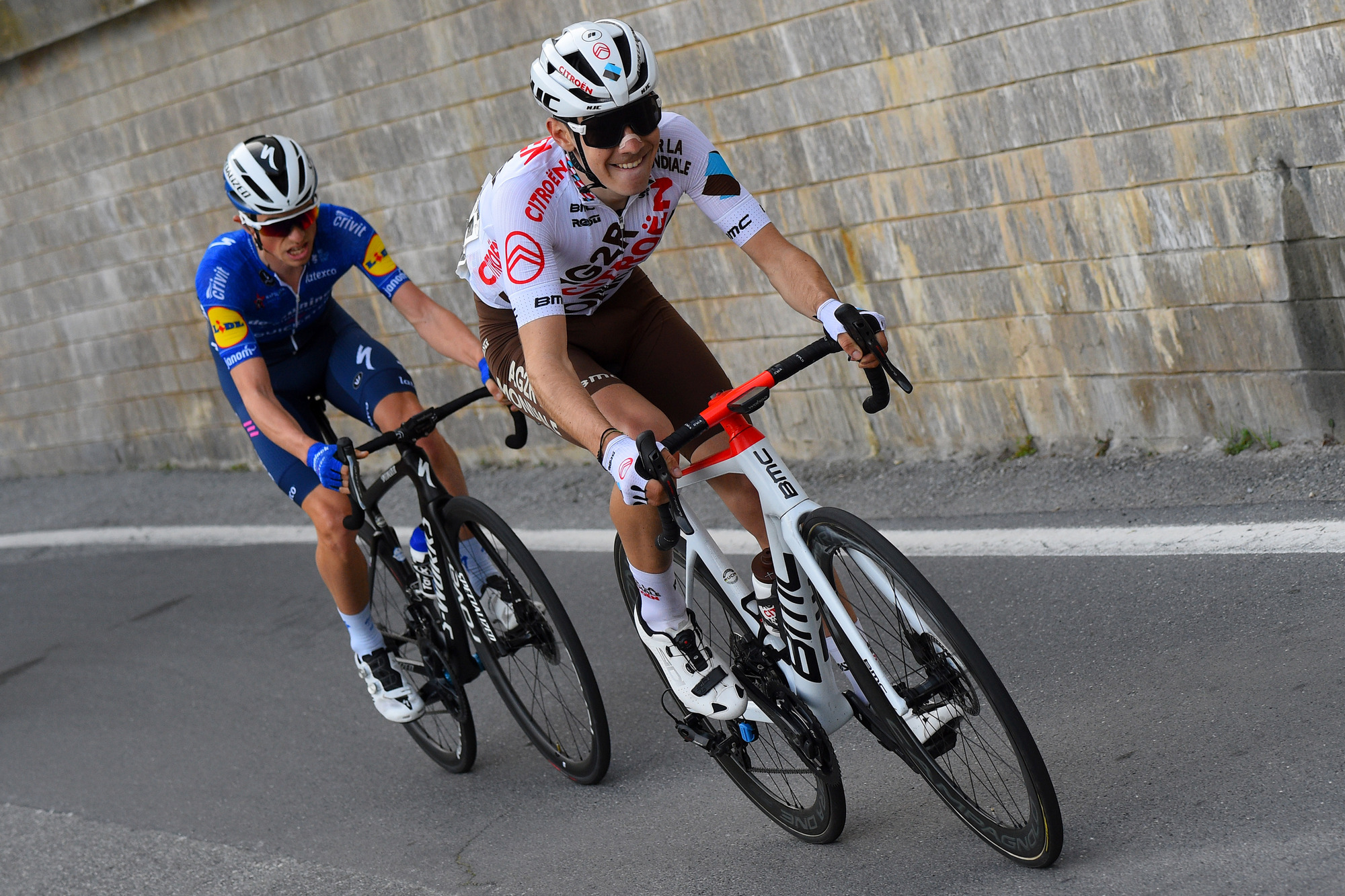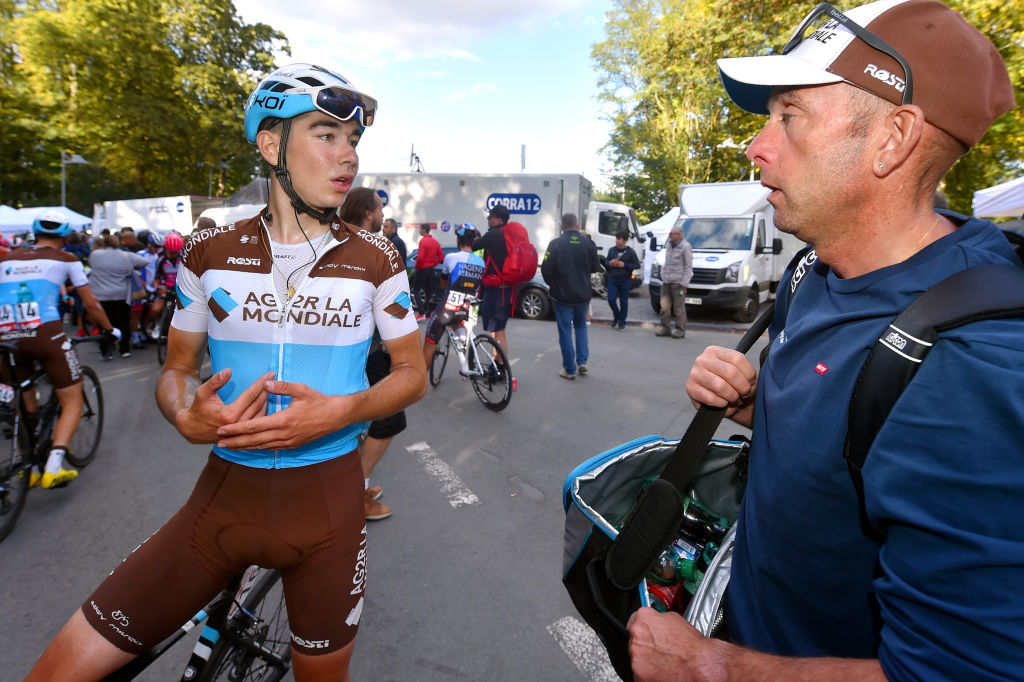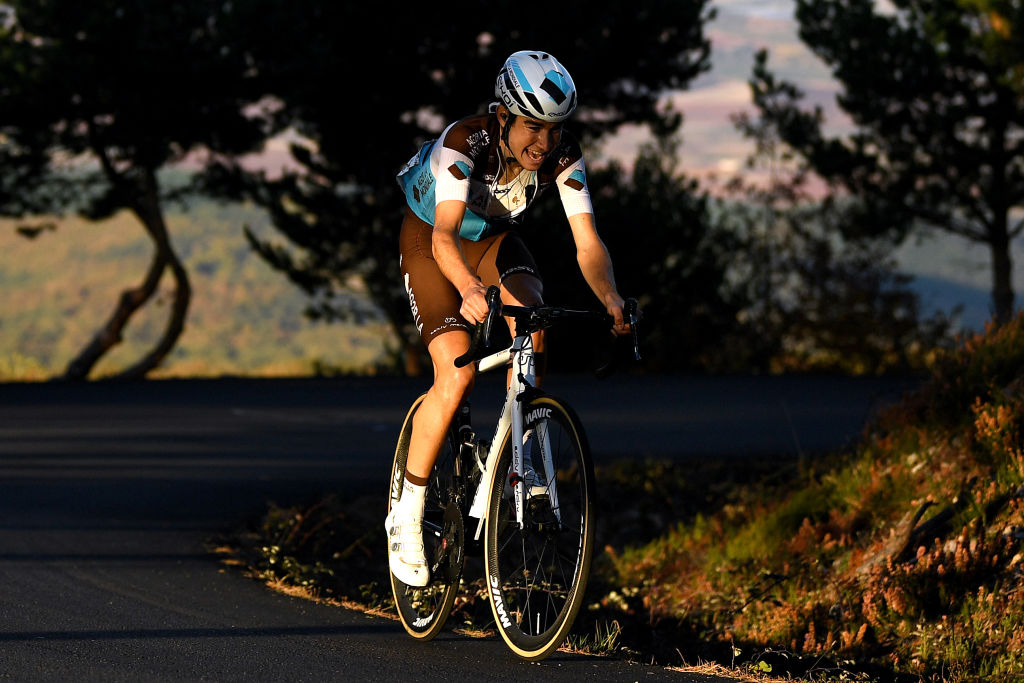Who is Clément Champoussin? French puncheur making a splash
AG2R talent specialises in the hills

Clément Champoussin, 22, is an up-and-coming rider from the new generation of French talent. Twice a top-five finisher at the Tour de l'Avenir, he's already making his mark in the professional ranks.
After racing for AG2R Citroën's development team, Chambéry Cyclisme Formation, he graduated to the WorldTour in April last year, and caught the eye despite the strange circumstances of the pandemic.
He made his Grand Tour debut at last year's Vuelta a España and has kicked on at the start of 2021, placing 11th at Tour du Var, second at Faun-Ardèche Classic, and fourth at Trofeo Laigueglia.
Cyclingnews caught up with Champoussin at the start of the season to find out more about a rider we'll likely be hearing a lot about in the coming years.
Cyclingnews: First of all, how did you start out in cycling?
Clément Champoussin: To begin with, I didn’t really do any road cycling. I was just riding for enjoyment – above all on my mountain bike. Then in the cadets I started to take up cross-country mountain bike racing quite seriously, and carried on into the juniors. I had two nice years doing that but I also tried a few road races, and I always seemed to go well and enjoyed it, so I said ‘why not go for it?’
CN: You then joined Chambéry. How did that happen?
Get The Leadout Newsletter
The latest race content, interviews, features, reviews and expert buying guides, direct to your inbox!
CC: I actually asked the team if it was possible to join. It was the only U23 team in France that was attached to a pro team, plus it was quite focused on climbers, which is my profile. So for me it was the only development team that really suited me.
CN: Things seemed to progress quickly in the U23s...
CC: I hadn’t really done much road racing before, so the first year was a bit of a leap into the unknown. I started with some amateur races but then deeper into the season I progressed to the bigger races. In my second year, above all from the summer and the Tour de l’Avenir, I started to go well in the races that suited me.
After my third season as an espoir, I backed up what I’d done in the previous year so I was certain I could turn pro. Vincent [Lavenu - team manager] told me it was possible, so that was great. At first, it was scheduled to be August 2020, but then on the training camp I felt pretty good so I asked if it was possible to bring the date forward, because I felt ready.
CN: Obviously it ended up being August anyway, but how was that first season?
CC: It was a little strange because up to April, I was still an amateur and all the amateur races were cancelled, so I didn’t race at all at the start of the year. When things started up again in August, I didn’t really have my marks and I didn’t quite know what to expect. In the end, my season was delayed again because I came into contact with someone with COVID, so that was three weeks without a race. I started properly in September, I wasn’t very good at first but was able to be useful for the team. Then with every race I felt myself progressing.
CN: You seemed to have a good Vuelta, with a couple of top-10s. How was that experience?
CC: I was happy to do the Vuelta – if not, I’d have had even fewer race days. It was pencilled in do to it from the start of the year, but it was dependent on a lot of things, so I’m glad it worked out. For me it was important that it didn’t become a blank year for me.
I wasn’t great at the start of the race but I got better and better as it went on. I gave it a go on some of the mountain stages to measure myself and see how far I could go. I recovered pretty well as the days went on and finished it tired but not completely dead – I still had some power in the pedals. So it went pretty well, and I think it served me well for this season, not just starting from scratch.

CN: What type of rider are you?
CC: I like to think I’m quite a complete rider. I’m primarily a climber, and I’m comfortable on most kinds of climbs. In terms of time trialling, I haven’t had much of a chance to work on that, but it’s something that I like doing. In the Vuelta I was top 20, which, for a first TT in the WorldTour, is not bad. I also like the puncheur finishes – I’m well used to those short efforts from my mountain biking days. So quite complete.
CN: What’s your favourite climb?
CC: I’d say the Col de Braus. It’s not far from where I live in Nice. It’s about 10km long, quite steady, lots of hairpins, and great views.
CN: Lots of riders live around Nice but you’re a Nice native… what’s it like?
CC: I love it. I grew up in Nice and for sure I will never leave. It’s not just because it’s so good for cycling. I like the climate, being close to the sea, being close to my family and friends. I have everything I need in Nice.
CN: What do you do when you’re not on your bike?
CC: You don’t get much time to do other things apart from riding your bike. When you’re training, the days are well filled, and when I get back tired, I just chill out really. I like going out with friends, watching Netflix, that sort of thing.
CN: Who were your role models growing up?
CC: There were a few riders I particularly liked watching in the races – for example [Alejandro] Valverde and [Philippe] Gilbert. I remember them attacking from the peloton, making efforts at the right moments, using their experience.
CN: Valverde and Gilbert are both in their late 30s, whereas we’ve seen a youth revolution in the past couple of years. Do you feel like you belong to this new generation of talent?
CC: I’ve not yet had any big results in the pros, so I can’t really count myself in that bracket, but there have been encouraging signs. I’ve only done a few races in the pros and I’ve performed well. I felt as though I adapted quickly. When I think back to the U23 races, I’ve quickly bridged that gap and I hope I can start getting those results now. Nowadays, you have to move quickly. As a youngster, there’s no time anymore to just develop in your first few years. You already have to perform and bring in results – there’s no choice.

CN: What are your objectives this season?
CC: Last year I did the Vuelta but without looking at GC, so this year think it would be good to try to do go for a bit of a GC placing, to see what it takes and to gain that experience. Doing that in a week-long race would be a good place to start, then we can think about Grand Tours later on. I’m not naïve; I know this year I’m not going to win a WorldTour-level stage race, but to be up there in the top 10 would be a good outcome.
CN: What are your Grand Tour plans?
CC: I’m down for the Giro as things stand, and I’ll have a free role to discover the race and my abilities.
CN: With Romain Bardet and Pierre Latour gone, is there a window for you to become the team’s next GC leader?
CC: The team has gone a bit more towards the Classics, so for me, I have the time to develop without as much pressure and without specific objectives. Maybe in the future if I go well, I can take on that leadership role.
CN: Is the Tour de France the dream race for you, thinking long-term?
CC: For sure, the Tour, for a Frenchman, is the biggest race. If I could get a good overall result at the Tour, it would be amazing. Actually winning the Tour is so complicated, that it’s not on my mind at all for now.
Patrick is a freelance sports writer and editor. He’s an NCTJ-accredited journalist with a bachelor’s degree in modern languages (French and Spanish). Patrick worked full-time at Cyclingnews for eight years between 2015 and 2023, latterly as Deputy Editor.
